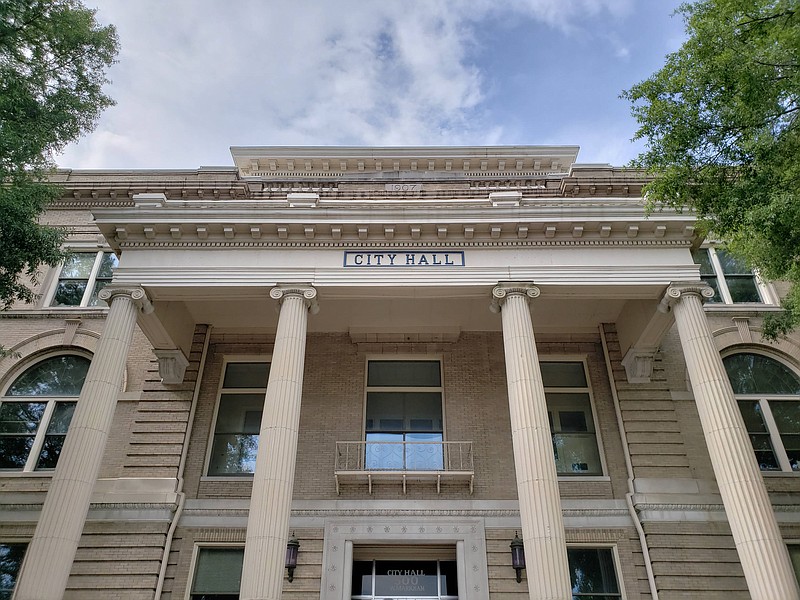Crimes that target individuals because of their race, national origin, religion, sexual orientation, gender identity or disability will now have enhanced penalties in Little Rock.
An ordinance approved by the city Board of Directors on Tuesday updates city code to make those crimes carry fines of up to $1,000, depending on the violation, for a first offense; a sentence of 30 days, 90 days or a year in jail; or a combination of fine and imprisonment.
Additionally, offenders will be required to undergo supervised release for up to a year. The ordinance is applicable to people 18 or older.
The city, through the Pulaski County prosecuting attorney's office, only can prosecute misdemeanors. The ordinance could apply to offenses including physically harming a person, damaging a person's property, or defacing a public space.
The ordinance says laws that provide enhanced penalties for crimes that target individuals because of their race, religion or sexual orientation are a way for society to recognize that those offenses "strike special fear within victimized groups, fragment communities, and tear at the very fabric of our democratic way of life."
Mayor Frank Scott Jr. commended Ward 3 City Director Kathy Webb on her leadership in putting the ordinance together and said the measure could serve as an example for other cities.
"It's my belief that this will serve as model legislation," Scott said.
Little Rock is the first city in Arkansas to adopt such an ordinance. Arkansas is one of four states that does not have statewide legislation addressing hate crimes, according to the U.S. Department of Justice.
Webb worked for more than a year with attorneys from the Anti-Defamation League on the ordinance. The organization is involved in efforts to work with cities in states that do not have hate crime legislation.
Citing an FBI statistic, Webb said more than 7,000 hate crimes were reported in the United States in 2018, adding that the vast majority actually go unreported. The ordinance also requires the Little Rock Police Department to report instances of hate crimes to the FBI for its annual report.
Before voting, Ward 5 City Director Lance Hines asked questions about the breadth of offenses for which the ordinance would apply.
"If somebody comes up to me and says 'You're a white cracker racist' and assaults me, would that be a hate crime?" he asked.
City Attorney Tom Carpenter said offenses would have to be judged on a case-by-case basis -- for instance, whether such a comment was made among friends or if it was made during an argument that escalated and turned violent.
Pointing to the section about defacing, desecrating, marring or otherwise damaging public monuments, art and places of worship, Hines asked if the ordinance could be applied to, for instance, references to "Black Lives Matter" or "Antifa," a term for a decentralized group of left-wing activists, scrawled on a Christian church. Carpenter said it could.
"I just want to make sure this applies both ways in the passage of this," Hines said.
The Anti-Defamation League cheered the ordinance's passage in a news release Tuesday evening.
"ADL believes the passage of this ordinance sends a clear message to the State legislature that Arkansas should join the 46 other states which have already enacted hate crime laws. And we urge other Arkansas communities to amplify this message by providing hate crime protections to their residents," Aaron Ahlquist, the organization's south-central regional director, said in the release.
A draft of a hate-crimes bill that would enhance sentences for targeted offenses in Arkansas was released by a bipartisan group of state lawmakers last month. Legislators are expected to take up the bill during the January session, and Gov. Asa Hutchinson has voiced support.
The proposed legislation is broader than the city ordinance and would penalize crimes against the homeless and those in the military. It would increase criminal penalties by up to one-fifth in the case of all hate crimes and require data collection and reporting to the FBI by the attorney general's office from all of the state's law enforcement agencies.
